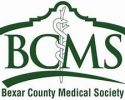Working as a medical scribe is becoming an increasingly popular option for medical students and those aspiring to work in the broader field of healthcare. The duties of a medical scribe serve as adequate, valuable, hands-on training for those aspiring to work in a variety of positions in the healthcare field. So, what are the duties of a medical scribe? Keep reading to learn more!
Medical professionals at hospitals and healthcare institutions around the country are responsible for a wide range of tasks and often work long, demanding shifts. Hiring a medical scribe can give physicians some much-needed help in balancing responsibilities and relieving them of duties that can allow them to perform their job more efficiently. The duties of a medical scribe can vary from one institution to another, but generally, the duties of a medical scribe include the following:
1. Collecting important medical data and keeping patient records.
The medical data a scribe might collect can include:
- Medical Records
Most often, the duties of a medical scribe include keeping track of patients’ medical history, which will need to be recorded using their healthcare system’s Electronic Health Record (EHR).
- Appointment Notes
Scribes are responsible for recording information presented during an encounter between a doctor and a physician. This includes information about symptoms, questions, concerns, and more.
- Letters
Scribes are sometimes responsible for writing referral letters for doctors or other types of correspondence needed for a patient.
And more.
2. Completing necessary paperwork
Completing clerical work such as filling out and organizing paperwork for patients can help relieve physicians of some demanding responsibilities to maximize efficiency during the workday and ensure they have as much time as possible to spend meeting with, diagnosing, and treating patients.
3. Maintaining communication with medical personnel
In addition to documenting communication between a patient and physician, a medical scribe is responsible for communicating with various departments throughout a medical facility to organize medical procedures (including X-rays, blood testing, CT scans, and more). In addition to organizing such procedures, a scribe will often monitor them to ensure maximum efficiency.
While the duties of a medical scribe can vary between institutions, these are the 3 duties that they are commonly responsible for. From performing clerical duties to collecting medical data, the duties of a medical scribe allow physicians and other medical professionals to be relieved from some time-consuming duties in order to maximize efficiency and improve the level of patient care they are able to provide. Working as a medical scribe allows medical students and those aspiring to work in the field of healthcare to gain firsthand experience in patient interaction, familiarize themselves with medical terminology and technology, and work closely with physicians to understand more about the field of medicine.
To learn more about the duties of a medical scribe or how a scribe can maximize efficiency in your healthcare facility, please contact Provider’s Choice Scribe Services. We take the care to match specific scribes to specific clients based on their needs and levels of experience to ensure enhanced efficiency and to create a healthy ROI for your practice or institution!



